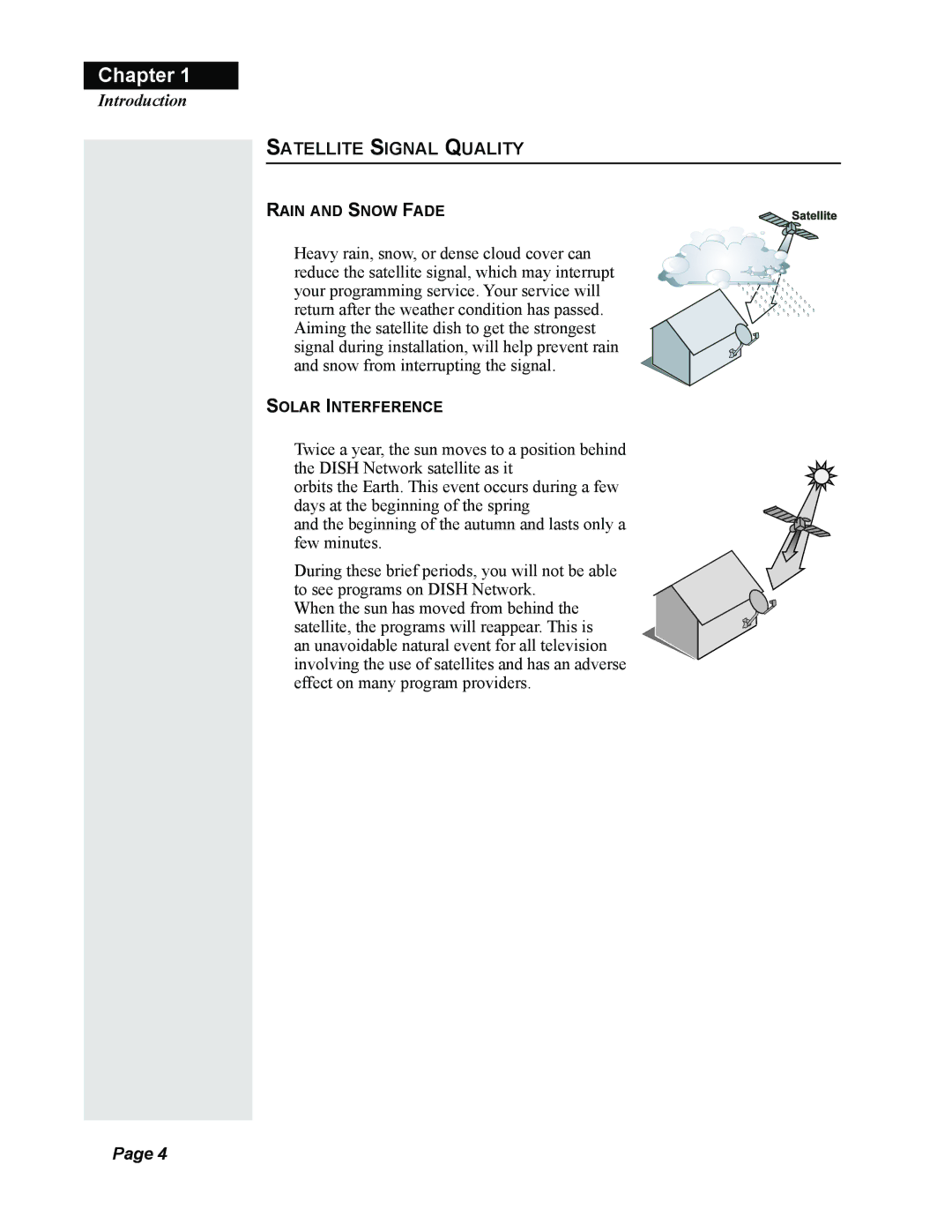
Chapter 1
Introduction
SATELLITE SIGNAL QUALITY
RAIN AND SNOW FADE
Heavy rain, snow, or dense cloud cover can reduce the satellite signal, which may interrupt your programming service. Your service will return after the weather condition has passed. Aiming the satellite dish to get the strongest signal during installation, will help prevent rain and snow from interrupting the signal.
SOLAR INTERFERENCE
Twice a year, the sun moves to a position behind the DISH Network satellite as it
orbits the Earth. This event occurs during a few days at the beginning of the spring
and the beginning of the autumn and lasts only a few minutes.
During these brief periods, you will not be able to see programs on DISH Network.
When the sun has moved from behind the satellite, the programs will reappear. This is an unavoidable natural event for all television involving the use of satellites and has an adverse effect on many program providers.
Page 4
